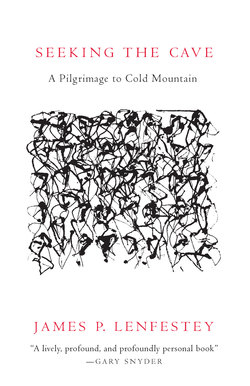Читать книгу Seeking the Cave - James P. Lenfestey - Страница 9
На сайте Литреса книга снята с продажи.
ОглавлениеPREFACE
Han-Shan Haibun
It is of the highest urgency for the creative artist to be honestly attentive to the sources of his inspiration and to the obligation those sources impose.
FRED GOSS AND JAMES BOGAN
SPARKS OF FIRE: BLAKE IN A NEW AGE
In the fall of 2006 I traveled to Japan and China seeking the cave of Han-shan, Cold Mountain, a recluse whose poems I have loved for more than thirty years, who took his final name from the place where he lived. I returned with notebooks filled with impressions and poems. Simple enough, I thought, to add back the skeleton and musculature of narration over the beating heart of the poems. In practice, the haibun process pushed me to immerse myself not only in my journals but also in additional studies of Chinese poetry and poets, the Japanese haibun form itself, and, to my surprise, memory.
Beginning in my mid-fifties, a new feeling began to grow inside me, a surprisingly powerful urge I came to term “seeking the cave.” I felt an increasing pull toward quietude if not solitude, toward the stillness of dawn and away from evening enthusiasms, toward contemplation and away from engagement. My pilgrimage to Cold Mountain cave, raucous as it sometimes was through the noisy, neon-lit frame of modern China—what we quickly dubbed the “Ka-ching Dynasty” for its obsession with the gleam and rattle of money—pays homage to that pull I eventually could not resist. My pilgrimage to Cold Mountain, the poet and the place, is its metaphor.
I present myself as no expert on any of this—neither China nor Chinese poetry nor translation nor pilgrimage nor haibun. I am only a man trying to find the best means to tell the story of an American life that mysteriously resonates with the poems and poetic style of a poet who lived, if he lived at all and isn’t a literary fiction, in a cave somewhere in the Tientai Mountains of China 1,200 years ago. In seeking the actual cave to which the poet Cold Mountain is believed to have retired, and from which he wrote his poems and took his final name, I was seeking—it’s clear to me now—my own true name. Perhaps these scribblings from the notebooks of my travels, some refined into poems—all refined after acute critical readings by Gary Snyder, John Rosenwald, Eric Utne, Thomas R. Smith, J. P. White, traveling companions Mike Hazard, Margaret Telfer and Ed McConaghay, and editor Daniel Slager—will resonate with the reader’s own voyages external and internal. Perhaps you too will learn your own true name for how to live within the wonderings of the last decades of a life. Special thanks to the Anderson Center for residencies that allowed me the time to complete this manuscript.
JAMES P. LENFESTEY
Mackinac Island, Michigan, after finishing at dawn
The Narrow Road to the Deep North and Other Travel Sketches
by Matsuo Bashō, translated by Nobuyuki Yuasa.
